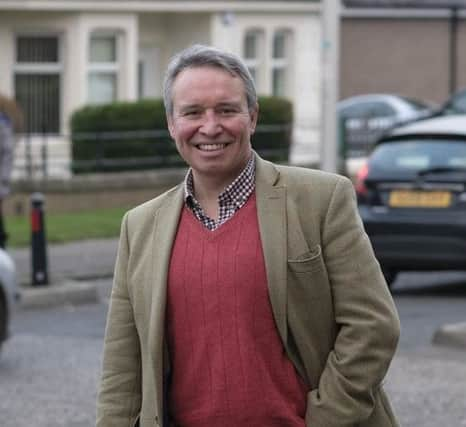John McLellan: Kerslake Report fails to mention role of broadcast regulator


Allegations like impersonating nurses, feet being stuck in doors and children quizzed going to school, are clearly against the Editors’ Code of Practice, and if the Independent Press Standards Organisation (IPSO) finds a member has committed such breaches it could lead to the first use of its power to fine publishers.
Lord Kerslake, a former senior civil servant, and his panel reported that the stories of media intrusion from victims’ families “cannot be denied” and asked IPSO to review the operation of the Code. If IPSO can produce recommendations which reduce the anguish felt by people caught up in such public tragedies then that will be welcomed by all bona fie media organisations.
Advertisement
Hide AdAdvertisement
Hide AdBut while there is nothing to suggest witnesses have lied, they are allegations to which no media organisation has had a chance to respond and cannot be accepted unquestioningly, despite what the report says. IPSO will have to produce a response quickly, but that does not mean it should be forced to base its actions on supposition.
While Kerslake absolved the Manchester Evening News and local media, since the phone hacking scandal it appears that the British press is guilty until proven innocent. Kerslake takes it further by insisting a different light cannot be shone on the evidence.
Kerslake recognises many foreign journalists and freelance agency reporters were present, but the onus has been put on IPSO and its members to control the behaviour of all journalists, whether employees or not.
Witnesses referred to the behaviour of scrums of reporters and TV news crews, but there is no mention whatsoever of the broadcast regulator Ofcom or its extensive rules about covering traumatic live incidents. Perhaps the Kerslake panel can explain.
- The golden rule of newspapers, know your readers, was taken a bit far in a Guardian reader holiday aimed at Islington Corbynistas; a seven-night tour of Greek poverty hotspots for just £2,500 (flights excluded).
“Greece and the Euro” was billed as a “fascinating exploration of the ongoing impact of the financial and refugee crises”, including meetings with austerity-stricken Athenian families and a discussion with a Piraeus official about refugees.
Immediately derided on social media as “pseudo-left privileged sensitivity”, “offensive mass exploitation of Greek misery” and “poverty porn tourism” it has now been withdrawn and The Guardian has apologised.
- On February 27, I said Joanna Cherry MP was threatening to sue the Daily Record over an analysis article which said her claim on the Andrew Marr Show that Scottish students left university without substantial debt was “mostly false”. Describing the article as defamatory, Ms Cherry said she would be seeking an apology. I am happy to clarify she intends doing so through the Independent Press Standards Organisation not the courts.
- John McLellan is director of the Scottish Newspaper Society and a City of Edinburgh Conservative councillor.